
Haifa: Israel's Gem by the Sea
Haifa, nestled between the shimmering Mediterranean Sea and the lush slopes of Mount Carmel, is a city of breathtaking contrasts and rich cultural heritage. As Israel's third-largest city, Haifa offers a unique blend of modernity and tradition, making it an ideal destination for tourists looking for both relaxation and adventure. One of the city's most striking features is the Baha'i Gardens, a UNESCO World Heritage site. These terraced gardens cascade down Mount Carmel and offer stunning panoramic views of the city and the sea. Visitors can take a peaceful stroll through the gardens, which are a symbol of unity and peace. Haifa's diverse population adds to its vibrant atmosphere. The German Colony, with its charming 19th-century buildings, is now a bustling area filled with cafes, restaurants, and boutiques. For history enthusiasts, the Stella Maris Monastery and Elijah's Cave offer intriguing insights into the city's religious significance. The city's coastline is dotted with beautiful beaches, perfect for sunbathing, swimming, or enjoying water sports. Dado Beach and Bat Galim Beach are popular spots where you can relax and soak up the Mediterranean sun. For a deeper dive into the marine world, the National Maritime Museum showcases Haifa's maritime history and artifacts. Haifa also hosts several cultural festivals throughout the year, such as the Haifa International Film Festival and the Holiday of Holidays, celebrating the city's multicultural fabric. With its scenic beauty, rich history, and vibrant culture, Haifa is a must-visit destination in Israel.
Local tips in Haifa
- Visit the Baha'i Gardens early in the morning to avoid the crowds and enjoy the serene atmosphere.
- Use the Carmelit, Israel's only subway, to explore the city efficiently, especially during peak traffic hours.
- Try the local cuisine at the eateries in the German Colony for an authentic taste of Haifa.
- Check the schedule for the Haifa International Film Festival if you visit in the fall; it's a great cultural experience.
- Pack comfortable walking shoes for exploring the hilly terrain of the city and the extensive Baha'i Gardens.
Neighbourhoods in Haifa
Haifa: Israel's Gem by the Sea
Haifa, nestled between the shimmering Mediterranean Sea and the lush slopes of Mount Carmel, is a city of breathtaking contrasts and rich cultural heritage. As Israel's third-largest city, Haifa offers a unique blend of modernity and tradition, making it an ideal destination for tourists looking for both relaxation and adventure. One of the city's most striking features is the Baha'i Gardens, a UNESCO World Heritage site. These terraced gardens cascade down Mount Carmel and offer stunning panoramic views of the city and the sea. Visitors can take a peaceful stroll through the gardens, which are a symbol of unity and peace. Haifa's diverse population adds to its vibrant atmosphere. The German Colony, with its charming 19th-century buildings, is now a bustling area filled with cafes, restaurants, and boutiques. For history enthusiasts, the Stella Maris Monastery and Elijah's Cave offer intriguing insights into the city's religious significance. The city's coastline is dotted with beautiful beaches, perfect for sunbathing, swimming, or enjoying water sports. Dado Beach and Bat Galim Beach are popular spots where you can relax and soak up the Mediterranean sun. For a deeper dive into the marine world, the National Maritime Museum showcases Haifa's maritime history and artifacts. Haifa also hosts several cultural festivals throughout the year, such as the Haifa International Film Festival and the Holiday of Holidays, celebrating the city's multicultural fabric. With its scenic beauty, rich history, and vibrant culture, Haifa is a must-visit destination in Israel.
When is the best time to go to Haifa?
Iconic landmarks you can’t miss
Baháʼí Garden Haifa
Experience the serene beauty and spiritual significance of the Bahá'í Gardens in Haifa, a UNESCO World Heritage Site showcasing stunning terraced landscapes and breathtaking views.
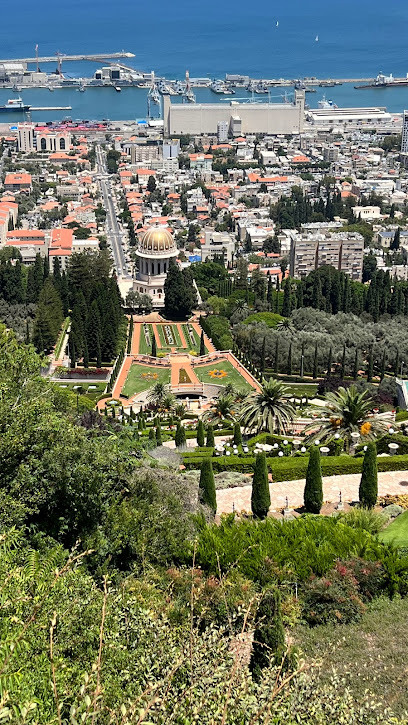
Mount Carmel National Park
Discover the breathtaking landscapes and diverse wildlife at Mount Carmel National Park, a serene escape in Haifa, Israel.
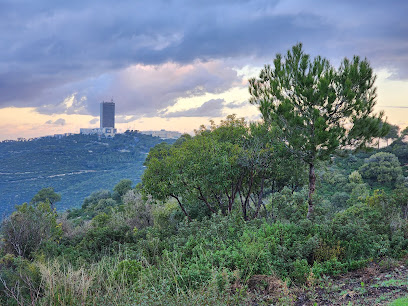
Madatech
Explore Madatech, Israel's National Museum of Science in Haifa, where interactive exhibits and hands-on learning await visitors of all ages.
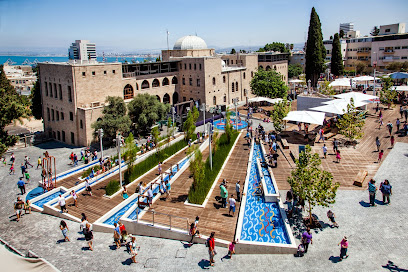
Hecht Park
Discover the beauty of Hecht Park in Haifa, a serene green oasis with stunning views and ample space for relaxation and outdoor activities.
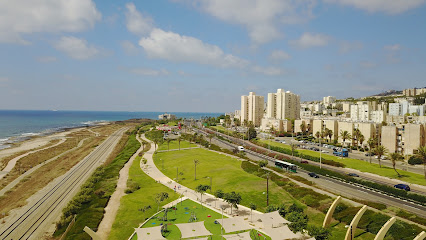
Nesher Park
Explore the serene landscapes of Nesher Park, a beautiful green oasis in Israel perfect for relaxation and outdoor activities.
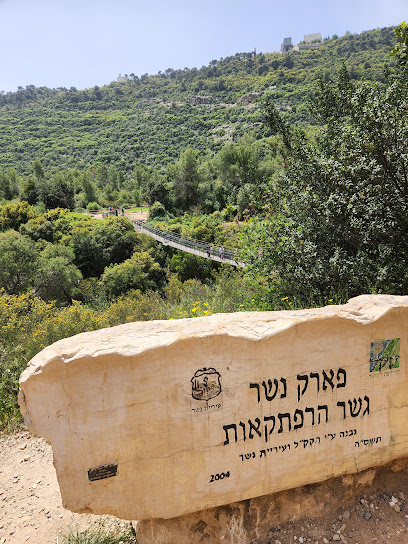
Haifa Zoo
Discover the vibrant wildlife of Haifa Zoo in Ha'Em Garden, where adventure meets education in a stunning natural setting.
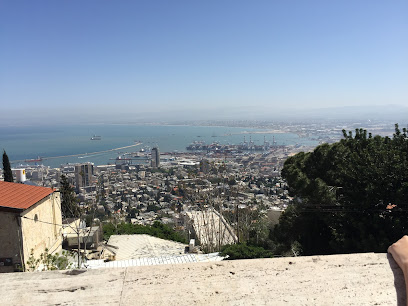
Stella Maris Monastery
Discover the tranquility of Stella Maris Monastery in Haifa, a spiritual oasis with stunning Mediterranean views and rich heritage.
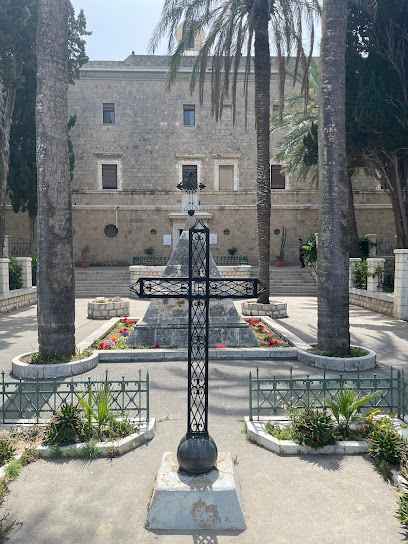
Ha’Em Garden
Discover the beauty of Ha’Em Garden in Haifa, a serene escape filled with vibrant flora and enchanting landscapes, perfect for relaxation and exploration.
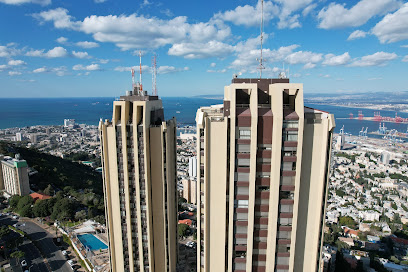
Bahá’í Gardens Haifa (Bahá’í Holy Place)
Explore the breathtaking Bahá'í Gardens in Haifa, a UNESCO World Heritage site where nature meets spirituality amidst stunning terraced landscapes.
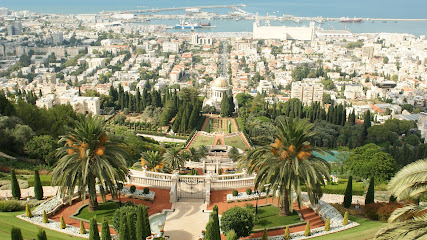
Flea Market Haifa
Explore the Flea Market Haifa, a vibrant bazaar of vintage treasures, local crafts, and delightful cafes in the heart of Israel's scenic coastal city.
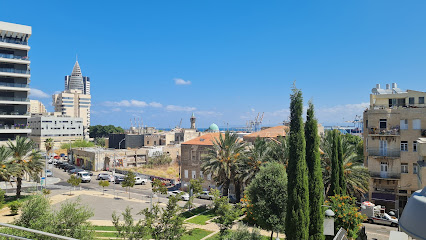
Paris Square
Discover the vibrant Paris Square in Haifa, a historical landmark rich in culture and stunning views, perfect for every tourist seeking local charm.
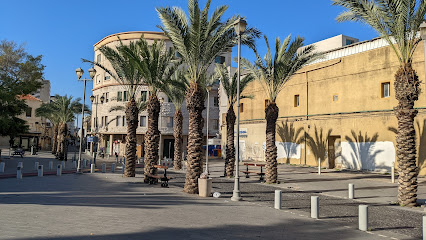
Sculptures Garden
Discover the artistic serenity of Haifa's Sculptures Garden, where stunning sculptures meet breathtaking Mediterranean views.
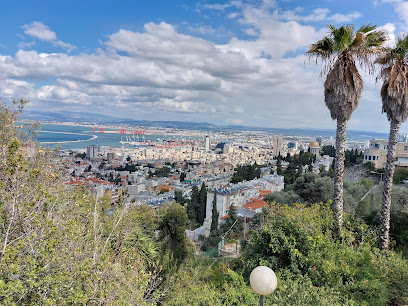
Haifa Museum of Art
Discover modern artistic brilliance at the Haifa Museum of Art, a must-visit cultural hub in Haifa, Israel for art lovers and tourists alike.
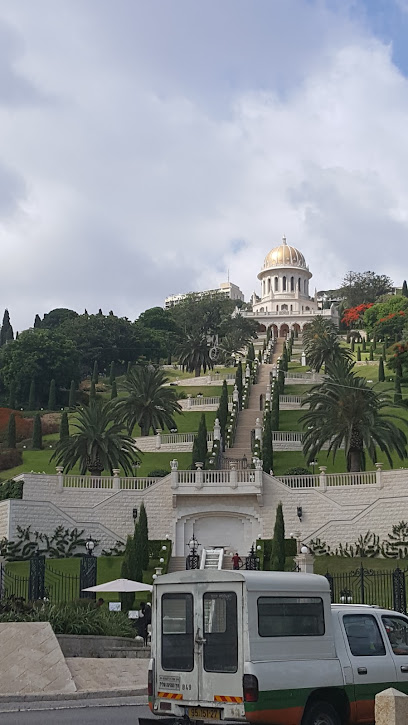
Bahá'í Gardens Haifa (Bahá’í Holy Place)
Explore the stunning Bahá'í Gardens in Haifa, a UNESCO World Heritage Site showcasing terraced beauty and spiritual significance.
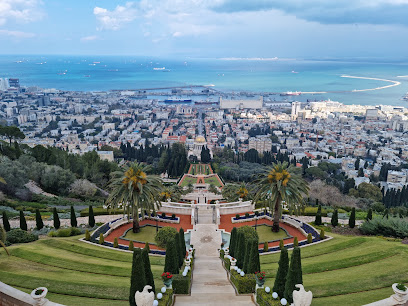
Beit Hagefen
Explore Beit Hagefen, the cultural center of Haifa, where art, history, and community converge in a vibrant atmosphere.
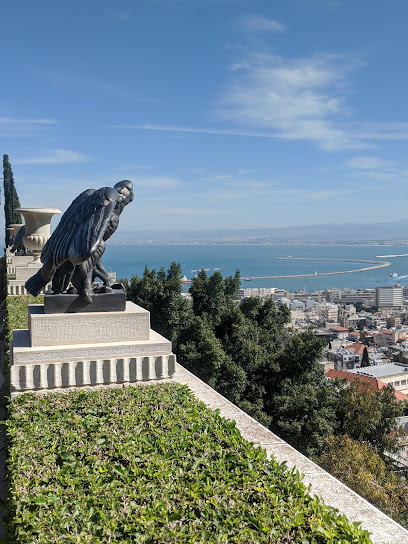
Unmissable attractions to see
Caesarea National Park
Explore the ancient wonders and breathtaking landscapes of Caesarea National Park, a unique blend of history and nature along Israel's stunning coastline.
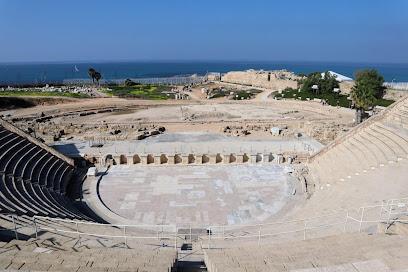
Rosh HaNikra Grottoes
Explore the stunning Rosh HaNikra Grottoes, where nature's artistry meets history along Israel's breathtaking Mediterranean coastline.
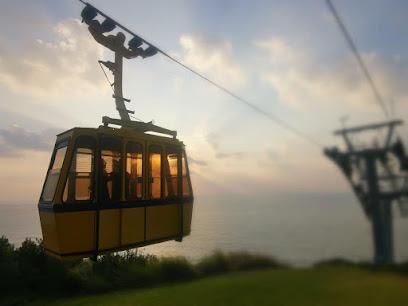
Ramat Hanadiv
Discover the enchanting Ramat Hanadiv, where history, nature, and adventure converge in a breathtaking landscape in Zikhron Ya'akov.
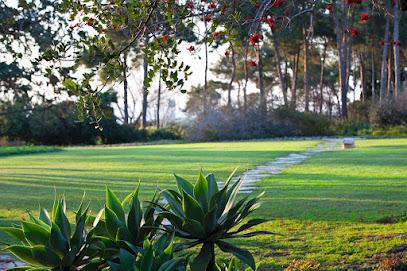
Mount Carmel National Park
Discover the stunning landscapes and rich biodiversity of Mount Carmel National Park in Haifa, Israel—a paradise for nature lovers and outdoor enthusiasts.
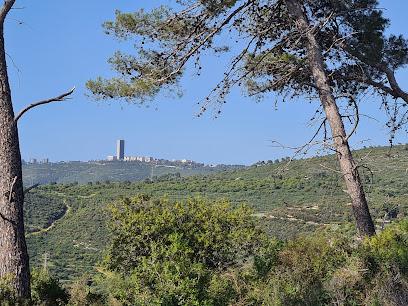
Church of the Annunciation
Explore the Church of the Annunciation in Nazareth, a sacred site where history and spirituality intertwine, offering a glimpse into the heart of Christianity.
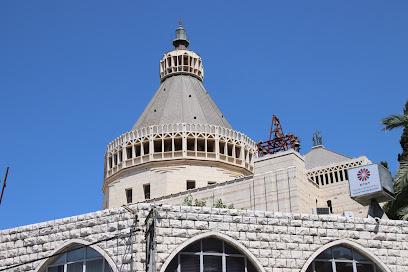
Madatech
Explore Madatech in Haifa, where cutting-edge science and engaging exhibits come alive for visitors of all ages.
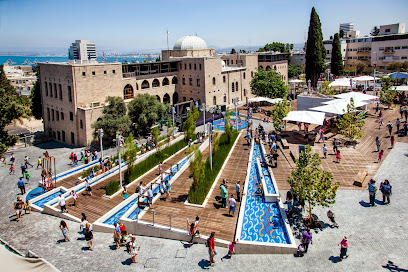
Hecht Park
Discover the beauty and tranquility of Hecht Park in Haifa, a perfect destination for nature lovers and families seeking a serene escape.
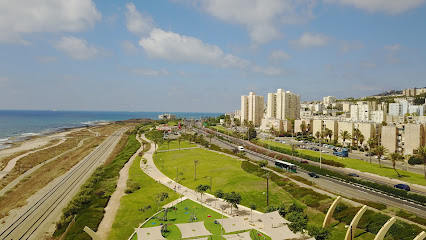
Nesher Park
Experience the natural beauty and recreation at Nesher Park, a serene destination for families and nature lovers in Israel's Nesher.
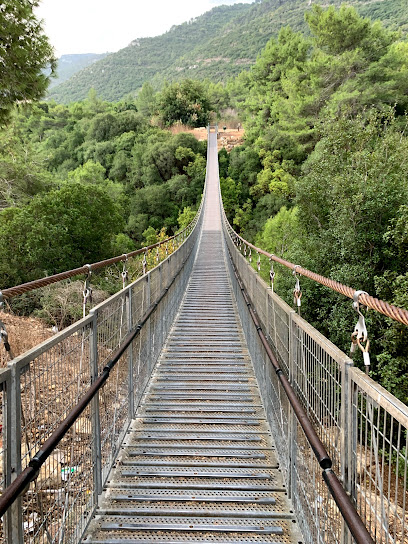
Knights' Halls, Old Akko
Discover the rich history and stunning architecture of the Knights' Halls in Old Akko, a must-visit historical landmark for every traveler.
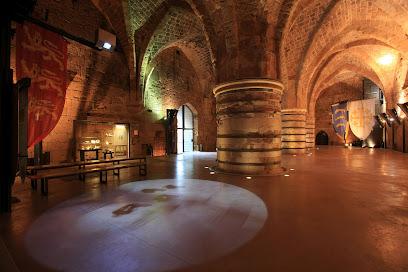
Keshet Cave
Explore the stunning Keshet Cave in Israel, a breathtaking natural wonder with incredible views and unique rock formations perfect for hiking and adventure.
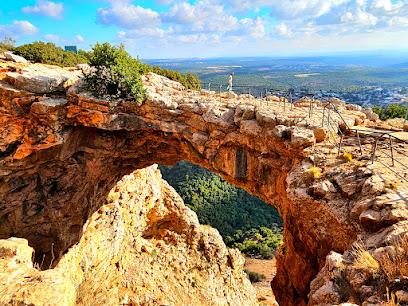
Bet She'arim National Park
Discover the ancient burial caves and breathtaking landscapes of Bet She'arim National Park, a hidden gem in Kiryat Tiv'on, Israel.
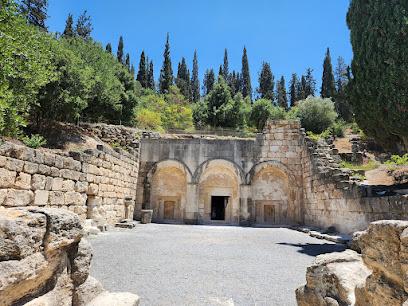
Templar's Tunnel
Discover the ancient secrets of Acre's Templar's Tunnel, a historical landmark that takes you through the intriguing past of the Knights Templar.
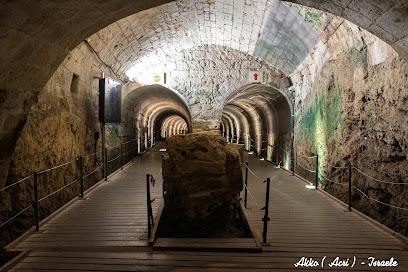
Stella Maris Monastery
Discover the serenity and stunning views of Stella Maris Monastery, a spiritual haven on Mount Carmel in Haifa, Israel.
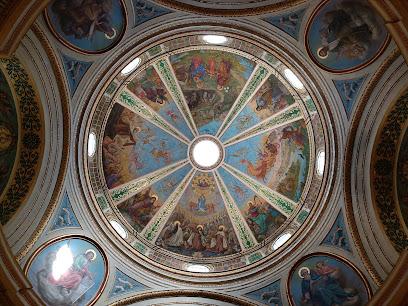
Ha’Em Garden
Experience the serene beauty of Ha’Em Garden in Haifa, a perfect blend of nature and culture with stunning sea views.
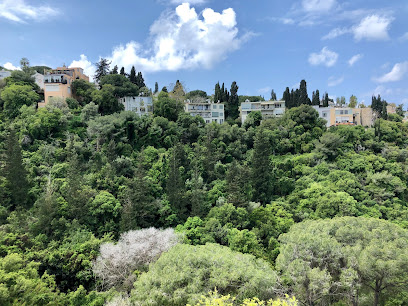
Ha’Em Garden
Discover Ha’Em Garden in Haifa, a stunning oasis with vibrant flora and breathtaking Mediterranean views, perfect for nature lovers and tranquility seekers.
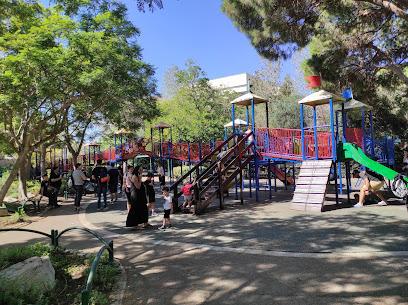
Essential places to dine
Vivino - רובע האיטלקי חיפה
Experience authentic Italian cuisine at Vivino in Haifa's charming Italian Quarter, where every dish tells a story.
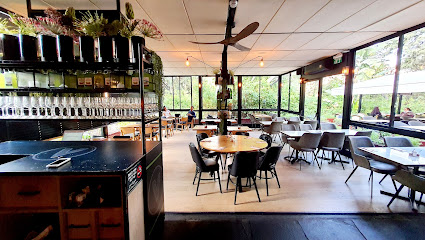
Eataliano Dalla Costa
Experience authentic Italian cuisine at Eataliano Dalla Costa in Haifa – where every dish tells a story of tradition and flavor.
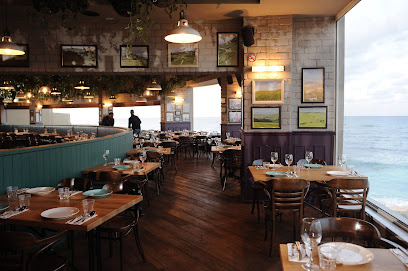
Fattoush
Experience authentic Lebanese flavors at Fattoush in Haifa—where every meal is accompanied by the joy of reading.
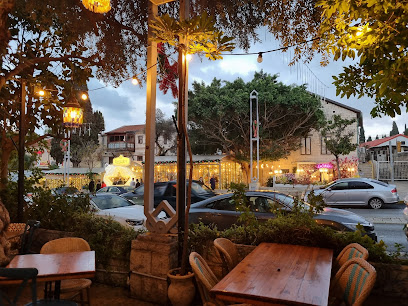
Minna Tomei
Experience authentic Asian cuisine at Minna Tomei in Haifa - a culinary journey filled with vibrant flavors and delightful dishes.
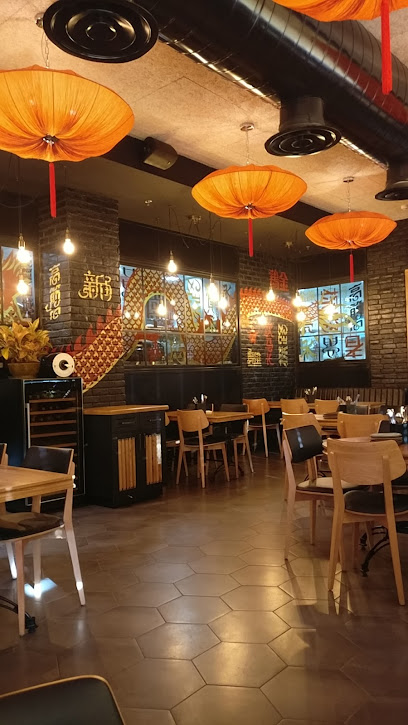
Raffaello
Experience authentic Italian cuisine at Raffaello in Haifa – where every meal is a delightful journey into Italy's rich culinary heritage.
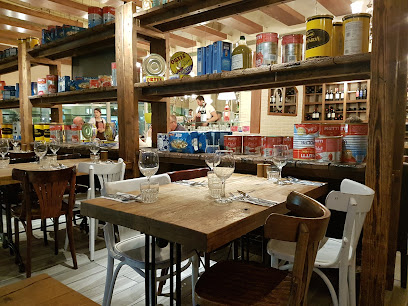
Colony Grill
Experience exquisite meats and fine dining at Colony Grill in Haifa - A meat lover's paradise with exceptional service.
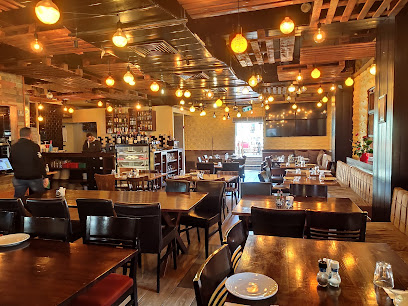
Maayan Habira
Experience the rich flavors of Israeli cuisine at Maayan Habira - a culinary gem in Haifa that promises delightful dishes and warm hospitality.
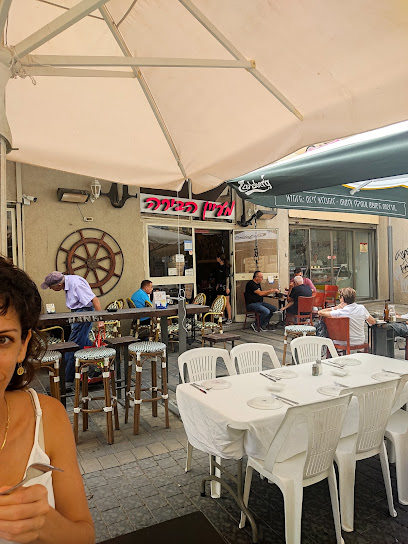
Shtroudl
Experience authentic Mediterranean cuisine at Shtroudl in Haifa – where flavor meets tradition in every dish.
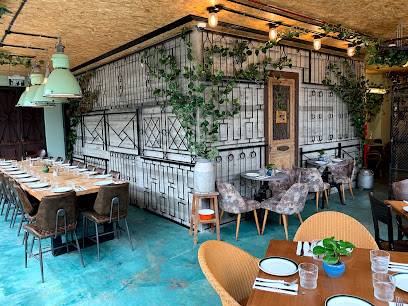
לוקס LUX - חיפה
Experience exquisite Middle Eastern cuisine with breathtaking Mediterranean views at Lux Haifa – where every meal is a masterpiece.
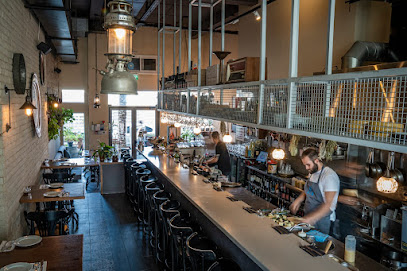
Zafririm 1
Discover Zafririm 1 in Haifa: where delicious cuisine meets lively atmosphere in the heart of Israel's culinary landscape.
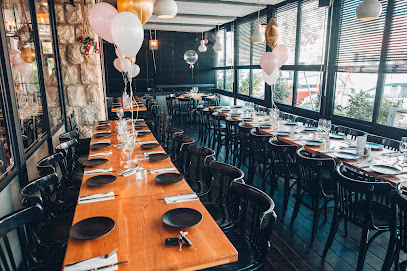
Chang Ba
Savor the authentic flavors of Thailand at Chang Ba in Haifa - a must-visit restaurant for food lovers seeking unique culinary experiences.
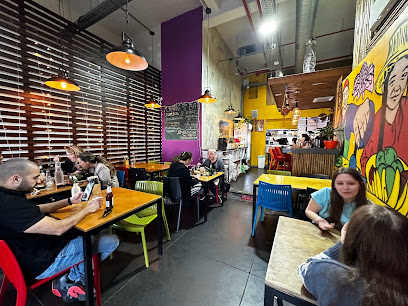
Camel
Experience the vibrant culinary scene at Camel Restaurant in Haifa - where local flavors meet international cuisine in a welcoming atmosphere.
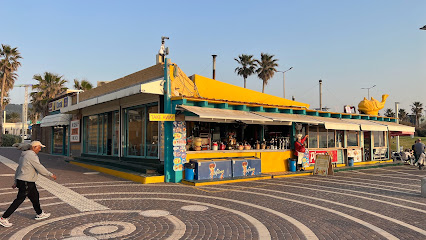
Maxim
Discover Mediterranean delights at Maxim in Haifa – where fresh ingredients meet authentic flavors for an unforgettable dining experience.
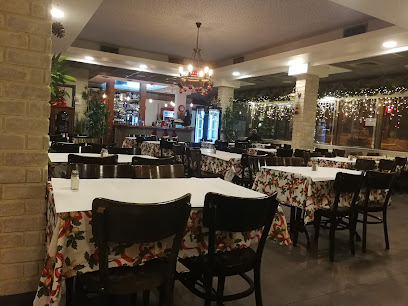
נירוונה פרש קיטשן - Nirvana By Fresh Kitchen
Experience exquisite dining at Nirvana By Fresh Kitchen on Haifa's beautiful shores - where fresh flavors meet stunning sea views.
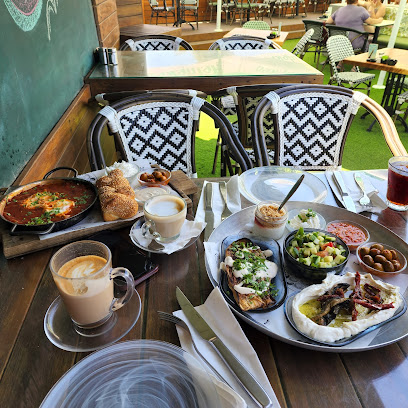
Agadir Burger
Savor the best gourmet burgers in Haifa at Agadir Burger, where quality meets flavor in every bite.
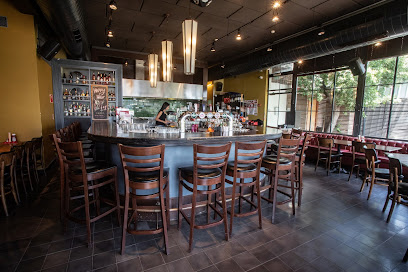
Markets, malls and hidden boutiques
Grand Canyon Haifa
Explore the Grand Canyon Haifa: A vibrant shopping mall in Haifa offering a mix of shopping, dining, and entertainment for all visitors.
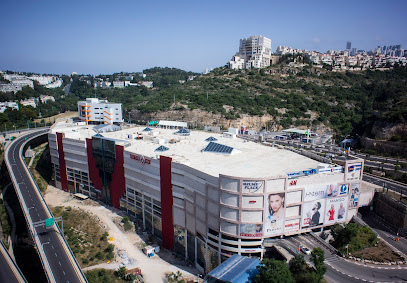
CineMall
Discover the ultimate shopping and entertainment experience at CineMall in Haifa, featuring a variety of stores and a stunning cinema with 19 screens.
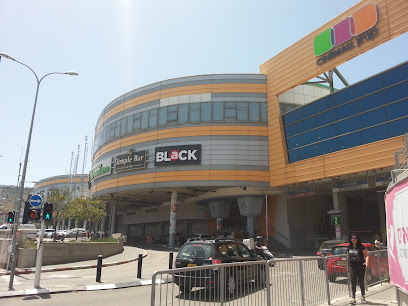
Azrieli Mall Haifa
Explore Azrieli Mall Haifa, a bustling shopping center with diverse retail stores, delightful dining options, and vibrant entertainment for an unforgettable experience.
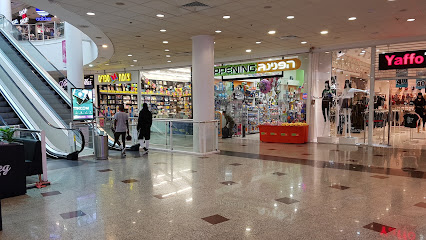
Outlet shopping center
Experience top-notch shopping at Haifa's Outlet Mall, where luxury meets affordability in a vibrant and exciting atmosphere.
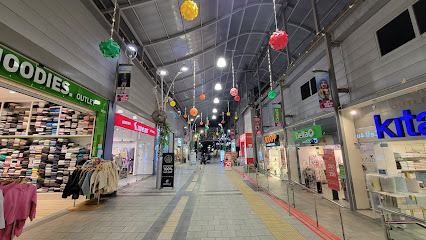
City Center - Outlet
Discover unbeatable deals and a wide array of brands at City Center - Outlet, Haifa's premier shopping destination for tourists and locals.
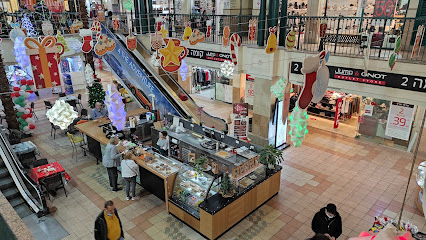
East and West - Haifa
Experience the vibrant flavors of Asia at East and West, Haifa's premier Asian grocery store, offering authentic ingredients and culinary delights.
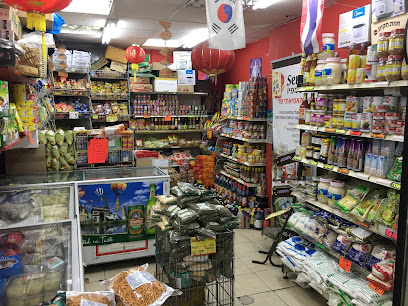
Zara
Experience trendy fashion at Zara in Haifa's Grand Canyon shopping center, where style meets affordability in a cozy environment.
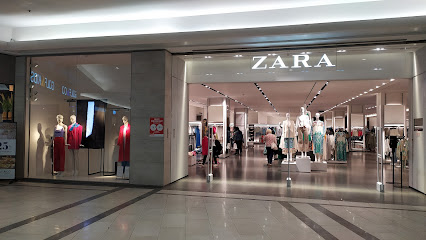
Urbanica
Discover Urbanica in Haifa: A stylish clothing store offering a trendy selection of apparel and accessories for every fashion enthusiast.
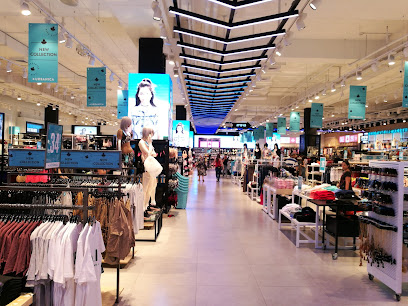
Maccabi Haifa
Explore Maccabi Haifa: A must-visit gift shop and soccer club for fans and tourists in Haifa, brimming with unique memorabilia and local culture.
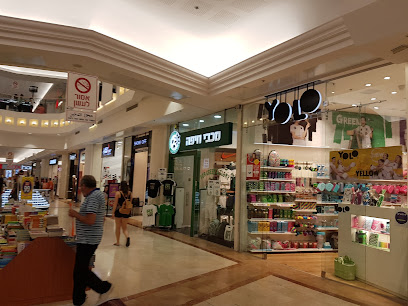
Big Shop
Shop at Big Shop in Haifa for a diverse range of clothing, toys, and accessories in a vibrant shopping atmosphere.
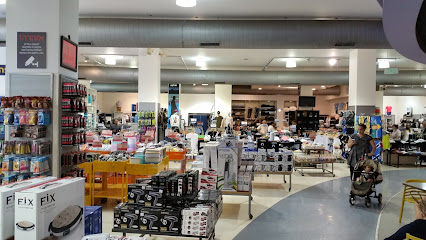
Anicha Shop
Explore Anicha Shop in Haifa for a unique thrift shopping experience featuring vintage clothing and sustainable fashion treasures.
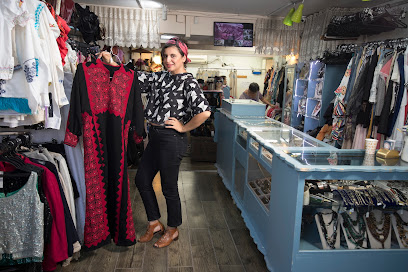
Nekudat Chen- Holyland Legacy Anointing oil and Holy water
Discover spiritual souvenirs and blessings at Nekudat Chen, your destination for authentic anointing oils and holy water in Haifa.
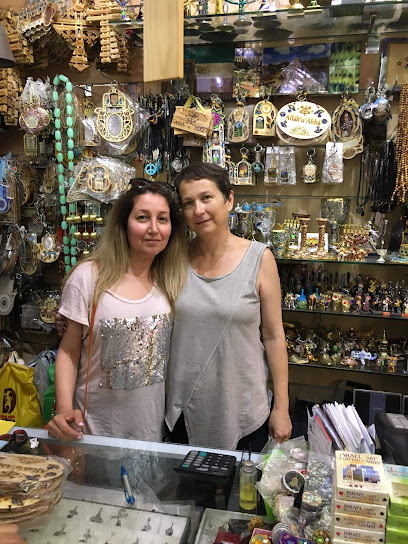
The Vinyl Room Haifa - חנות תקליטים
Explore a treasure trove of vinyl records at The Vinyl Room in Haifa, where music lovers unite to celebrate their passion for sound.
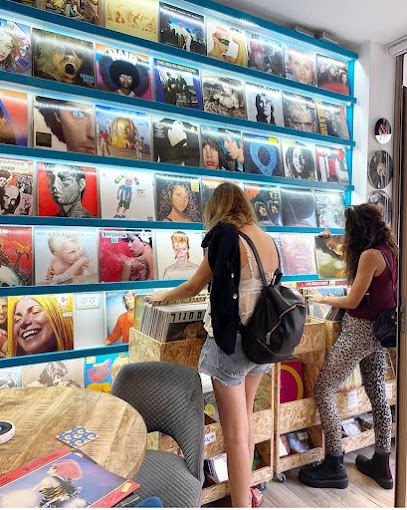
Nike Grand Haifa
Discover the latest in athletic gear and fashionable sportswear at Nike Grand Haifa, located in the vibrant Grand Kenyon shopping center.

האוסף של סוליי
Explore the charming האוסף של סוליי in Haifa for unique vintage gifts, clothing, and jewelry, perfect for memorable souvenirs.
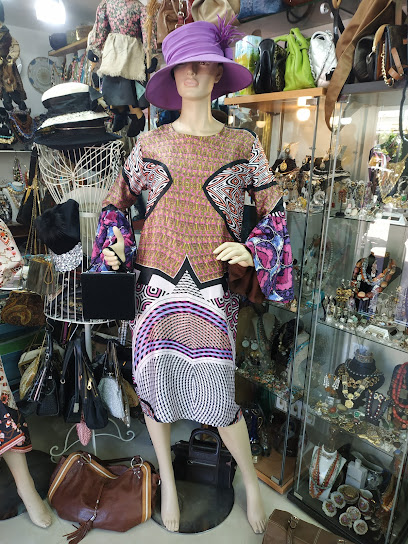
Essential bars & hidden hideouts
Iza Bar
Experience the vibrant nightlife at Iza Bar in Haifa, offering a unique blend of local flavors, live music, and a warm atmosphere for all visitors.
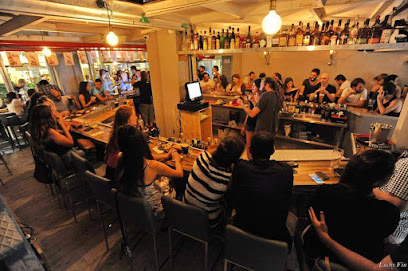
The Duke
Experience the lively atmosphere and diverse menu at The Duke, Haifa's premier pub for locals and tourists alike.
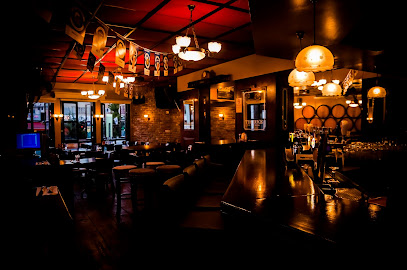
בראון
Discover a lively bar and restaurant experience in Haifa, where delicious food meets vibrant nightlife, perfect for every occasion.
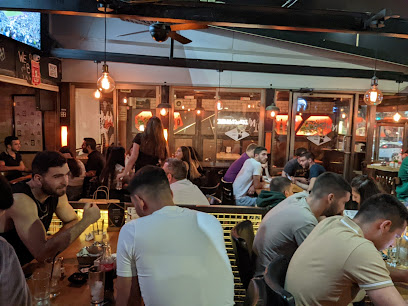
Bar Galim
Experience the vibrant nightlife at Bar Galim in Haifa, where stunning views and crafted drinks meet a lively atmosphere, perfect for any occasion.
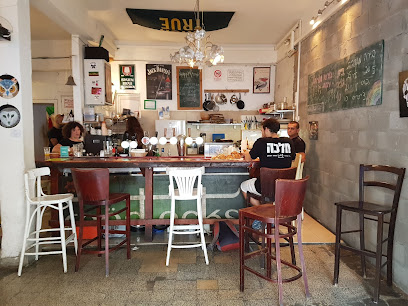
Eli's Pub-אליס פאב
Discover Eli's Pub in Haifa: A lively bar for cocktails, burgers, and live music, offering an unforgettable night out in a vibrant setting.
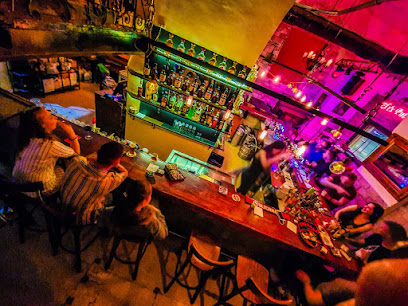
Urban Street Bar
Discover the lively Urban Street Bar in Haifa, where delicious drinks and a vibrant atmosphere await every visitor.
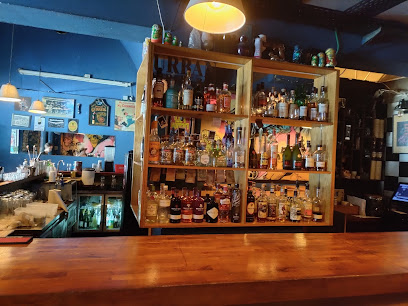
Vesper - Cocktail Bar
Experience the vibrant nightlife of Haifa at Vesper, a cocktail bar where expertly crafted drinks meet a stylish ambiance, perfect for unwinding after your adventures.
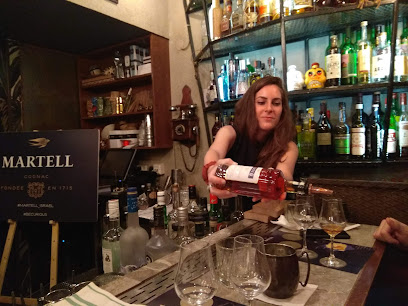
CHARLIEBAR
Experience the best of Haifa's nightlife at CharlieBar, where local craft beers and a vibrant ambiance meet for unforgettable moments.
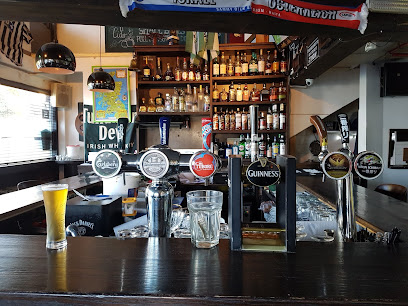
Stella Bar
Discover the vibrant flavors of Haifa at Stella Bar, where grilled perfection meets a lively atmosphere in an unforgettable dining experience.
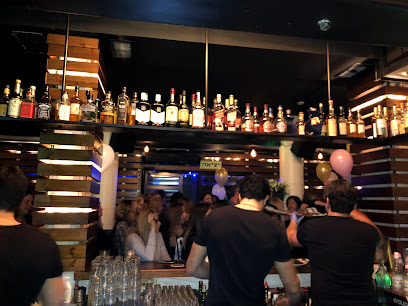
Mint Lounge Bar
Unwind at Mint Lounge Bar in Haifa for exquisite cocktails, delicious gastropub bites, and an inviting atmosphere perfect for socializing.
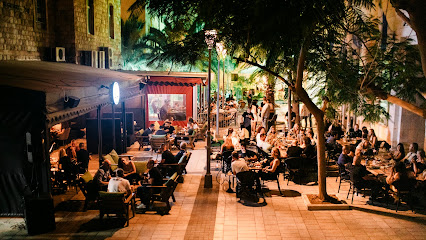
Secret Bar
Discover the vibrant atmosphere of Secret Bar in Haifa, a top destination for beer lovers and nightlife enthusiasts alike.
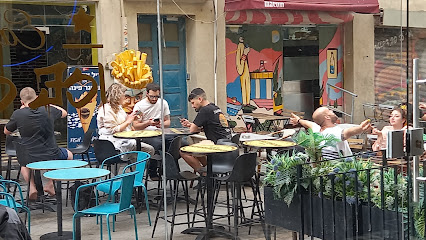
Sababa Bar
Discover the bustling nightlife of Haifa at Sababa Bar, where creative cocktails and a vibrant atmosphere await you.
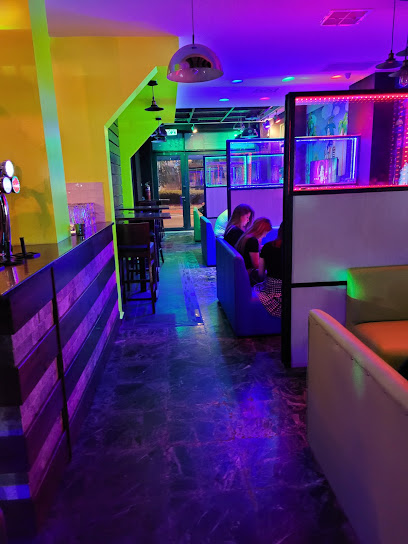
ESCOBAR
Experience the vibrant nightlife at ESCOBAR in Haifa, a lively pub with great drinks, music, and a welcoming atmosphere.
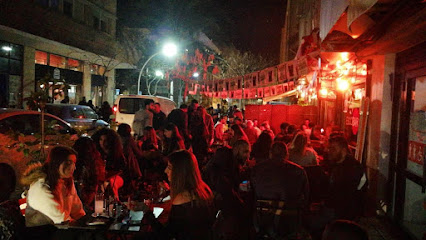
B side bar
Discover the vibrant nightlife of Haifa at B Side Bar, where eclectic drinks and a lively atmosphere await you.
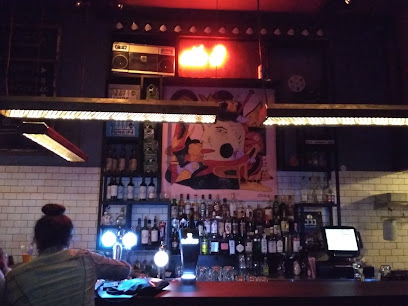
Local Phrases
-
- Helloשָׁלוֹם
[Shalom] - Goodbyeלְהִתְרָאוֹת
[Lehitraot] - Yesכֵּן
[Ken] - Noלֹא
[Lo] - Please/You're welcomeבְּבַקָּשָׁה
[Bevakasha] - Thank youתוֹדָה רַבָּה
[Toda raba] - Excuse me/Sorryסְלִיחָה
[Slicha] - How are you?אֵיך אַתָּה?
[Eich ata?] - Fine. And you?טוֹב. וְאַתָּה?
[Tov. Ve'ata?] - Do you speak English?אַתָּה מְדַבֵּר אַנְגְלִית?
[Ata medaber anglit?] - I don't understandאֲנִי לֹא מֵבִין
[Ani lo mevin]
- Helloשָׁלוֹם
-
- I'd like to see the menu, pleaseאֲנִי רוֹצֶה לִרְאוֹת אֶת הַתַּפְרִיט, בְּבַקָּשָׁה
[Ani rotse lirot et hataprit, bevakasha] - I don't eat meatאֲנִי לֹא אוֹכֵל בָּשָׂר
[Ani lo ochel basar] - Cheers!לְחַיִּים!
[Lechayim!] - I would like to pay, pleaseאֲנִי רוֹצֶה לְשַׁלֵם, בְּבַקָּשָׁה
[Ani rotse leshalem, bevakasha]
- I'd like to see the menu, pleaseאֲנִי רוֹצֶה לִרְאוֹת אֶת הַתַּפְרִיט, בְּבַקָּשָׁה
-
- Help!עֶזְרָה!
[Ezrah!] - Go away!לֵךְ הַלֹּךְ!
[Lech halech!] - Call the Police!קְרָא לַמִּשְׁטָרָה!
[Kra lamishtara!] - Call a doctor!קְרָא לָרוֹפֵא!
[Kra larofe!] - I'm lostאֲנִי אֹבֵד
[Ani oved] - I'm illאֲנִי חוֹלֶה
[Ani choleh]
- Help!עֶזְרָה!
-
- I'd like to buy...אֲנִי רוֹצֶה לִקְנוֹת...
[Ani rotse liknot...] - I'm just lookingאֲנִי רַק רוֹאֶה
[Ani rak roeh] - How much is it?כְּמָה זֶה עוֹלֶה?
[Kama ze ole?] - That's too expensiveזֶה יָקָר מַדָּי
[Ze yakar madai] - Can you lower the price?אַתָּה יָכוֹל לְהוֹרִיד אֶת הַמַּחִיר?
[Ata yachol lehorid et hamageer?]
- I'd like to buy...אֲנִי רוֹצֶה לִקְנוֹת...
-
- What time is it?כִּמָּה הַשָּׁעָה?
[Kama hashaa?] - It's one o'clockהַשָּׁעָה הַאַחַת
[Hashaa haachat] - Half past (10)חֲצִי (עֶשֶׂר)
[Chatzi (eser)] - Morningבֹּקֶר
[Boker] - Afternoonצָהֳרַיִם
[Tzohorayim] - Eveningעֶרֶב
[Erev] - Yesterdayאֶתָּמוֹל
[Etmol] - Todayהַיוֹם
[Hayom] - Tomorrowמָחָר
[Machar] - 1אֶחָד
[Echad] - 2שְׁתַיִם
[Shetayim] - 3שָׁלֹשׁ
[Shalosh] - 4אַרְבַּע
[Arba] - 5חֲמֵשׁ
[Chamesh] - 6שֵׁשׁ
[Shesh] - 7שִׁבְעָה
[Shiv'ah] - 8שְׁמוֹנָה
[Shmona] - 9תִּשְׁעָה
[Tisha] - 10עֶשֶׂר
[Eser]
- What time is it?כִּמָּה הַשָּׁעָה?
-
- Where's a/the...?אֵיפֹה נִמְצָא...
[Eifo nimtza...] - What's the address?מַה הַכְתוֹבָת?
[Ma haktovat?] - Can you show me (on the map)?אַתָּה יָכוֹל לְהַרְאוֹת לִי (עַל הַמַפָּה)?
[Ata yachol leharot li (al hamapa)?] - When's the next (bus)?מָתַי הַבּוּס הַבָּא?
[Matai habus haba?] - A ticket (to ....)כַּרְטִיס (ל...)
[Kartis (le...)]
- Where's a/the...?אֵיפֹה נִמְצָא...
History of Haifa
-
Haifa's history dates back to the Late Bronze Age, around the 14th century BCE. Archaeological excavations have uncovered evidence of a small port town that served as a hub for maritime trade. The ancient settlement was strategically positioned on the slopes of Mount Carmel, overlooking the Mediterranean Sea, which made it a valuable location for commerce and military endeavors.
-
During the Byzantine era, Haifa grew in significance, and the construction of churches and monasteries flourished. In the 7th century CE, the city fell under Islamic rule following the Muslim conquest of the Levant. Haifa continued to thrive as a commercial center, and its population became a blend of various cultures and religions, including Christians, Muslims, and Jews.
-
In the 12th century, Haifa was captured by the Crusaders, who fortified the city and built castles and towers to defend it. The city became part of the Kingdom of Jerusalem and saw an influx of European settlers. However, it remained a contested territory, frequently changing hands between Crusaders and Muslim forces until its eventual recapture by the Mamluks in the late 13th century.
-
Under Ottoman rule from the early 16th century, Haifa transformed from a small village to a bustling port town. The Ottomans reconstructed the city's harbor and encouraged trade and settlement. The 18th century saw the arrival of German Templers, who established a colony and significantly contributed to the city's development by introducing modern agricultural and industrial practices.
-
Following World War I, Haifa came under British control as part of the British Mandate for Palestine. The city experienced rapid urbanization and modernization, becoming a major industrial and transportation hub. The construction of the Haifa port and the arrival of the Hejaz Railway transformed Haifa into a critical gateway for goods and passengers in the region.
-
In the years leading up to the establishment of the State of Israel in 1948, Haifa was a focal point of Jewish-Arab tensions. The city witnessed significant conflict during the 1947–1948 Civil War in Mandatory Palestine. Eventually, Jewish forces took control of Haifa in April 1948, leading to the exodus of a large portion of its Arab population.
-
Today, Haifa is Israel's third-largest city and a vibrant cultural and economic center. Its diverse population includes Jews, Arabs, Christians, Druze, and Baha'is, reflecting its rich historical tapestry. Haifa is renowned for its technological and educational institutions, such as the Technion - Israel Institute of Technology, and its beautiful Bahá'í Gardens, a UNESCO World Heritage site.
Haifa Essentials
-
Haifa, located in northern Israel, is accessible via multiple modes of transportation. The closest international airport is Ben Gurion Airport in Tel Aviv, about 90 kilometers away. From Ben Gurion, you can take a direct train to Haifa, which takes roughly an hour and a half. Alternatively, there are numerous buses and shared taxis (sherut) available. If you prefer driving, car rentals are available at the airport.
-
Haifa has an efficient public transportation system that includes buses, the Carmelit underground funicular, and trains. The buses and the Carmelit connect various parts of the city, while trains can take you to other cities in Israel. Taxis and ride-sharing services like Gett are also widely available. For a more scenic experience, consider taking the cable car from the Bat Galim neighborhood to the Stella Maris Monastery.
-
The currency in Haifa is the Israeli Shekel (ILS). Credit and debit cards are widely accepted in hotels, restaurants, and shops. ATMs are plentiful, and you can exchange foreign currency at banks and exchange offices. It's advisable to carry some cash for small purchases and in case you visit places that do not accept cards.
-
Haifa is generally a safe city for tourists, but it's important to remain vigilant. Avoid secluded areas at night and be cautious in crowded places to prevent pickpocketing. Neighborhoods like Wadi Salib and Hadar have higher crime rates, so exercise caution when visiting these areas.
-
In case of emergency, dial 100 for police, 101 for medical assistance, and 102 for fire services. Haifa has several hospitals, including the Rambam Health Care Campus. Pharmacies are widely available for minor health issues. Make sure you have travel insurance that covers medical emergencies.
-
Fashion: Do dress modestly, especially when visiting religious sites. Avoid overly revealing clothing. Religion: Do respect local customs and religious practices. Public Transport: Do offer your seat to elderly passengers and avoid eating or drinking on public transport. Greetings: Do greet people with a handshake; it's a common practice in Israel. Eating & Drinking: Do try local cuisine and kosher food. Don't refuse hospitality, as it can be considered rude.
-
To experience Haifa like a local, visit the Flea Market in the Wadi Nisnas neighborhood for unique finds and local foods. Spend time in the German Colony, known for its shops, cafes, and stunning views of the Bahá'í Gardens. For a quieter experience, head to the beaches like Bat Galim and Dado Beach. Don't miss the opportunity to ride the Carmelit funicular, the only subway in Israel, for a unique perspective of the city.
Trending Landmark in Haifa
Nearby Cities to Haifa
-
Things To Do in Acre
-
Things To Do in Akko
-
Things To Do in Zikhron Ya'akov
-
Things To Do in Nahariya
-
Things To Do in Nazareth
-
Things To Do in Caesarea
-
Things To Do in Rosh HaNikra
-
Things To Do in Hadera
-
Things To Do in Tiberias
-
Things To Do in Safed
-
Things To Do in Netanya
-
Things To Do in Tyre
-
Things To Do in Beit She'an
-
Things To Do in Umm Qais
-
Things To Do in Ra'anana

















